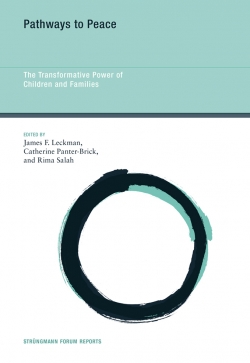Institutionalization of Young Children: Problems and Consequences to Societies
Institutionalization of Young Children: Problems and Consequences to Societies
Chapter 9 authors: Nathan A. Fox, Charles A. Nelson, and Charles H. Zeanah
Introduction
UNICEF estimates that over 8 million children globally live in institutional care. Young children spend time in institutional care during sensitive periods when experiences have profound effects on development. They grow up in the absence of experience-expectant stimuli, meaning changes that happen as a result of expectation of certain experiences, which may affect brain development on a cellular level. They also have experience-dependent changes that may lead to behavior changes as an adaption to psychosocial deprivation in a chaotic environment. The Bucharest Early Intervention Project analyzes a randomized control trial of a foster care intervention for children in institutions in Romania.
Ethics of Bucharest Early Intervention Project
To ensure the Bucharest Early Intervention Project was ethical, no child removed from institutional care into the foster care intervention would return to institutional care after the study finished. Furthermore, the Romanian child protection authorities had input in the study.
Effects of Psychosocial Deprivation on the Brain
Brain activity was measured using EEG to record brain waves throughout the study of the Bucharest Early Intervention Project. More brain activity was found in the sample of community children compared to children in institutions. The brain activity of institutionalized children placed in the foster care intervention before the age of two years old was similar to the activity of children who had never been in an institution. The study suggests that there may be a sensitive period for neural development that affect EEG signals and that the environment affects this development. Overall, early psychosocial deprivation can have profound effects on brain structure and function, which in turn affects social and cognitive behaviors.
Unanswered Questions
The Bucharest Early Intervention Project prompted questions that were unanswered by the study. These questions include looking at the epigenetic and genetic variation between children in institutions and those not in institutions as well as the effects of early life experiences the role of neurohormones. Additionally, what aspects of caregiving are needed to form a healthy attachment and does the foster home intervention help children when they enter adolescence and adulthood?
JOIN THE CONVERSATION
For breaking news and to stay connected, follow us on social media. Sign up to get our E-News delivered straight to your inbox.

